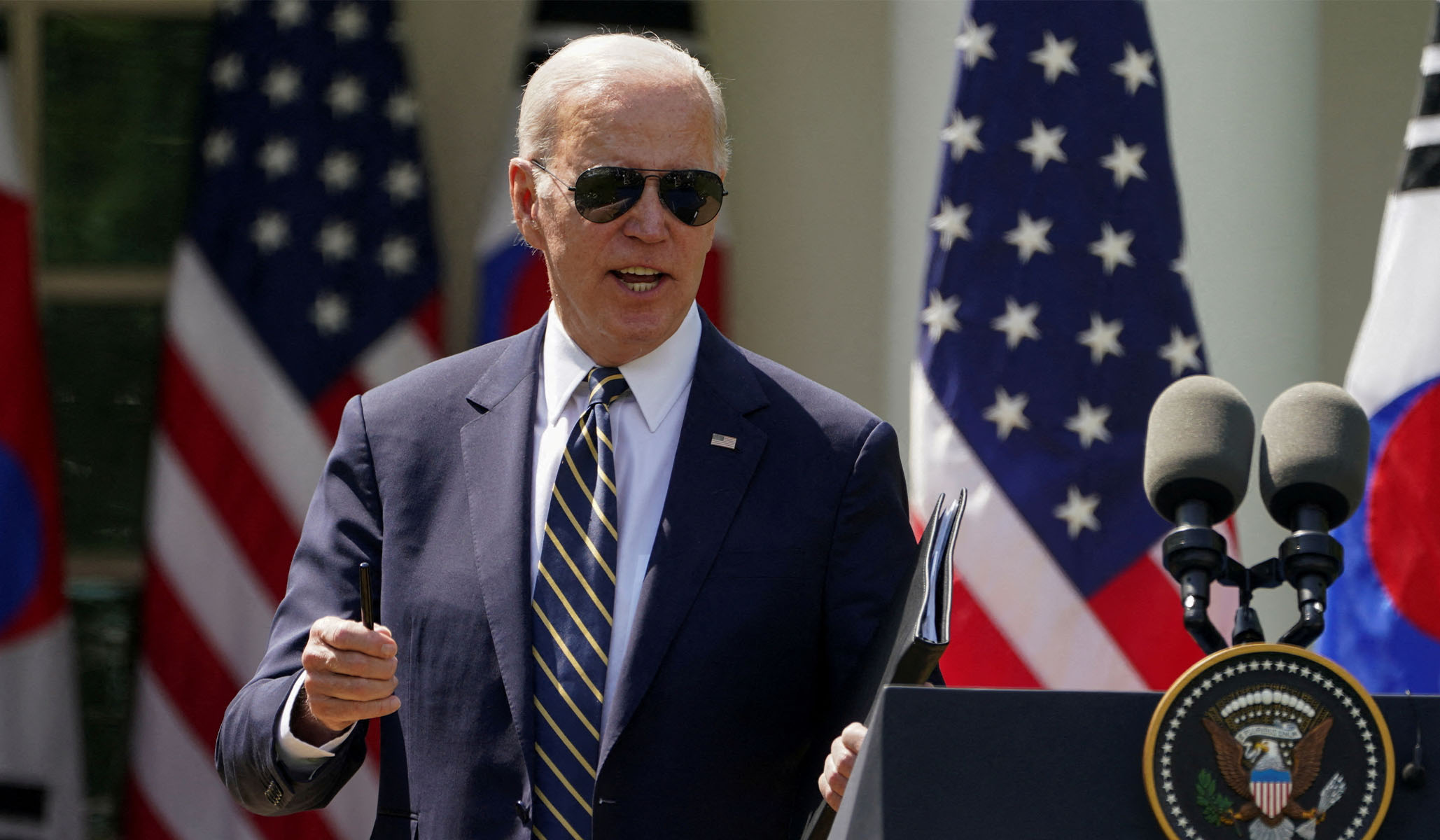


NRPLUS MEMBER ARTICLE J oe Biden’s age is a serious problem for his reelection bid, for the Democratic Party, and, above all, for the United States of America. How do I know this to be true? I know this to be true because, in the New York Times, the usually sensible David Leonhardt is busy explaining in earnest that, “strange as it may sound, the American government can function without a healthy president.” “The biggest reason that many Democratic officials are nervous about President Biden’s age,” Leonhardt reports, “is not his ability to do the job in a second term.” No, “the issue that makes many Democrats even more anxious than Biden’s second-term capabilities is whether his age will prevent him from winning a second term.” As a matter of prosaic fact, this may be true. That does not prevent it from being a disgrace.
As evidence that Biden’s age does not matter much to his role as the chief executive of the federal government, Leonhardt names two former presidents: Franklin Roosevelt and Ronald Reagan. “The U.S. marched toward victory in World War II while Franklin Roosevelt was ailing in 1944 and 1945,” he writes. As for Reagan? “The government managed its relationship with a teetering Soviet Union while Ronald Reagan’s mental capacities slipped.” I would quibble with this characterization of Reagan, who was thoroughly involved in his presidency until its end, and whose lucid year-eight press conferences compared favorably with what Joe Biden is capable of even now. But let’s assume that I’m wrong, and that, at age 76, Reagan was indeed slipping mentally. What sort of case is that in favor of reelecting Joe Biden — who is already three years older than Reagan was when he left office, and who would be 86 at the end of his second term? If one squints, one can understand why Democratic partisans would rather have an unhealthy Democrat rather than a healthy Republican in office. One cannot understand why the median voter would.
I have never shied away from saying what I see in front of me, and I shall not do so now, either: Joe Biden is too old to be president. In 1996 and in 2008, the press asked what would happen were Bob Dole or John McCain to win the White House and then be exposed as unfit for their task. This is no longer a hypothetical. Our current president — the one who just announced that he’s running to be president again — shows us every day what happens when we elect people who are not up to the job. Biden is confused. He’s incoherent. He’s frail. This is not because he has “a stutter,” and it’s not because his critics are “mean.” Both of those things were true ten, 20, and 30 years ago. It is because Joe Biden is very old. Biden was not like this as vice president. He was not like this in the Senate. He was not like this when, in 1973, he based his Senate campaign on the charge that his 63-year-old opponent was too aged to hold office. The videos, audio recordings, and transcripts that prove as much are in the public domain.
Ultimately, the argument that Leonhardt is adumbrating is profoundly undemocratic. If it is true that “the American government can function without a healthy president,” that is only because, in times when the president is incapacitated, the American government is run by someone else. Which is to say: by people whom the voters have not selected. In a crisis, one might favor such continuity: When Woodrow Wilson was ailing, Edith Wilson secretly took over; when FDR entered his final days, the military ran the war for which, as commander in chief, he was responsible; when Ronald Reagan was shot, the U.S. had a surfeit, rather than a dearth, of potential stand-ins. But these represented exceptional circumstances, not deliberate choices that the public had been encouraged to make. If, in April 2023, the best that the nation’s paper of record can do is to say, “Well, I guess if it comes to it, the bureaucracy will keep things on autopilot,” things have gone awry indeed.
In a famous episode of Fawlty Towers, the neurotic Basil finds a dead guest in one of his hotel rooms and suggests that in future he “should be more specific” in his advertising. Perhaps, he remarks, he should note henceforth that his is a “hotel for people who have a better than 50 percent chance of making it through the night.” If, indeed, Joe Biden ends up being the Democrats’ nominee, America’s voters must do something similar. “Thanks for the offer,” they might say, “but we’d rather have a president whom the actuarial tables hadn’t already condemned on the day of his first inauguration.”
